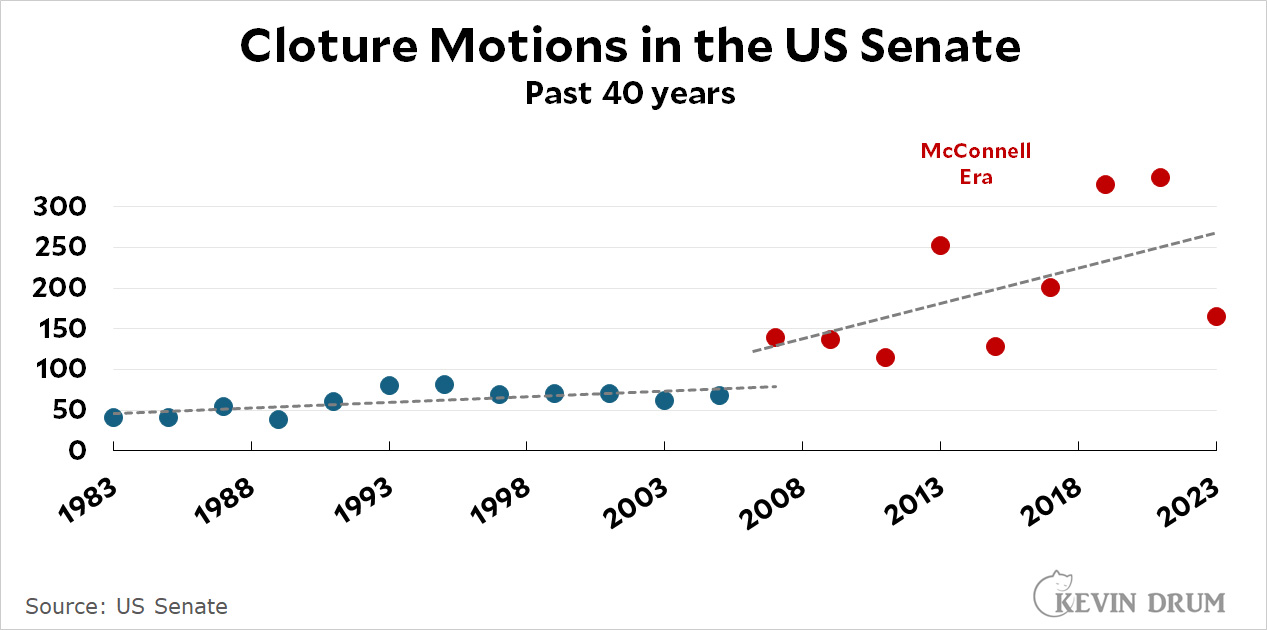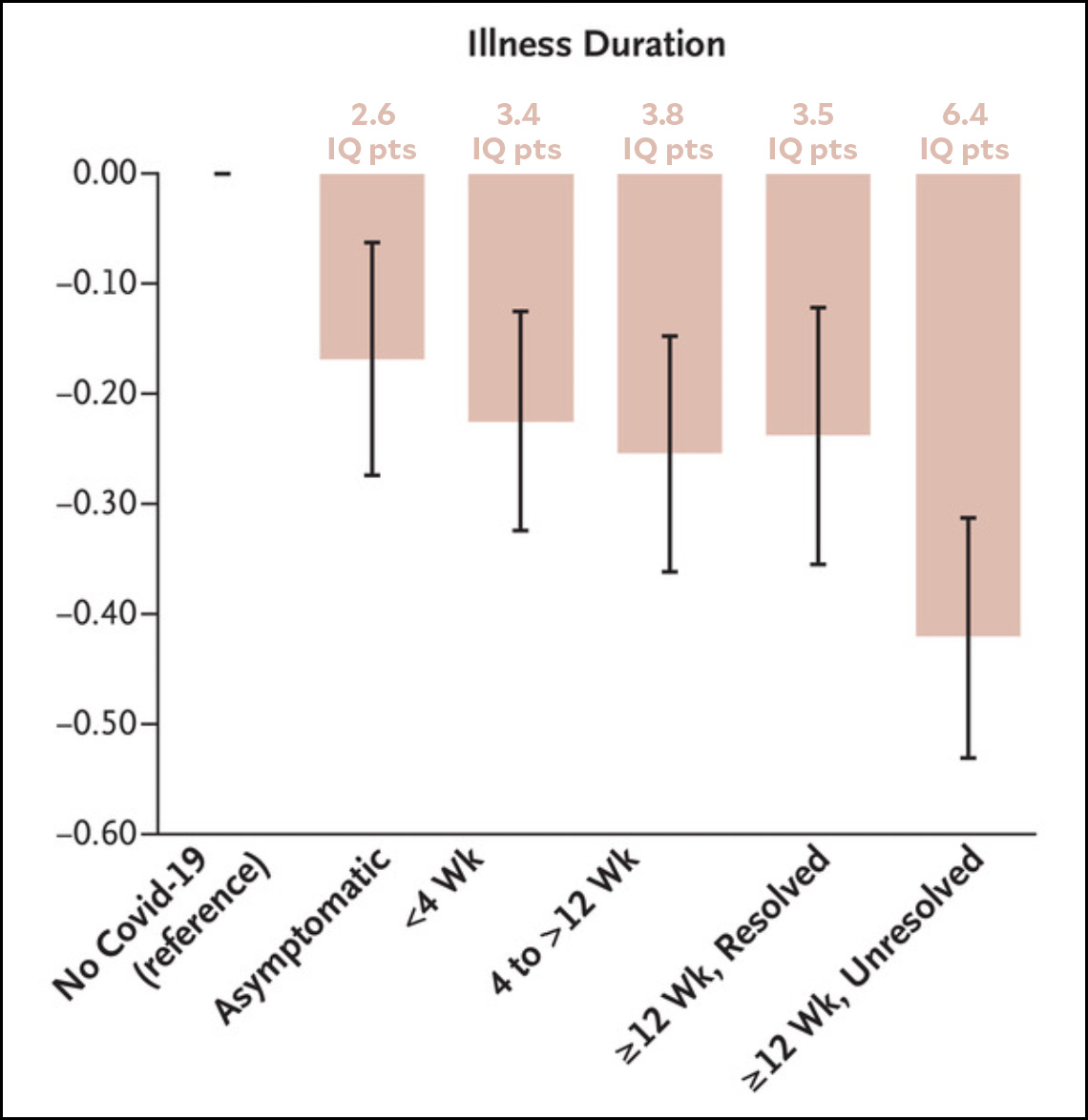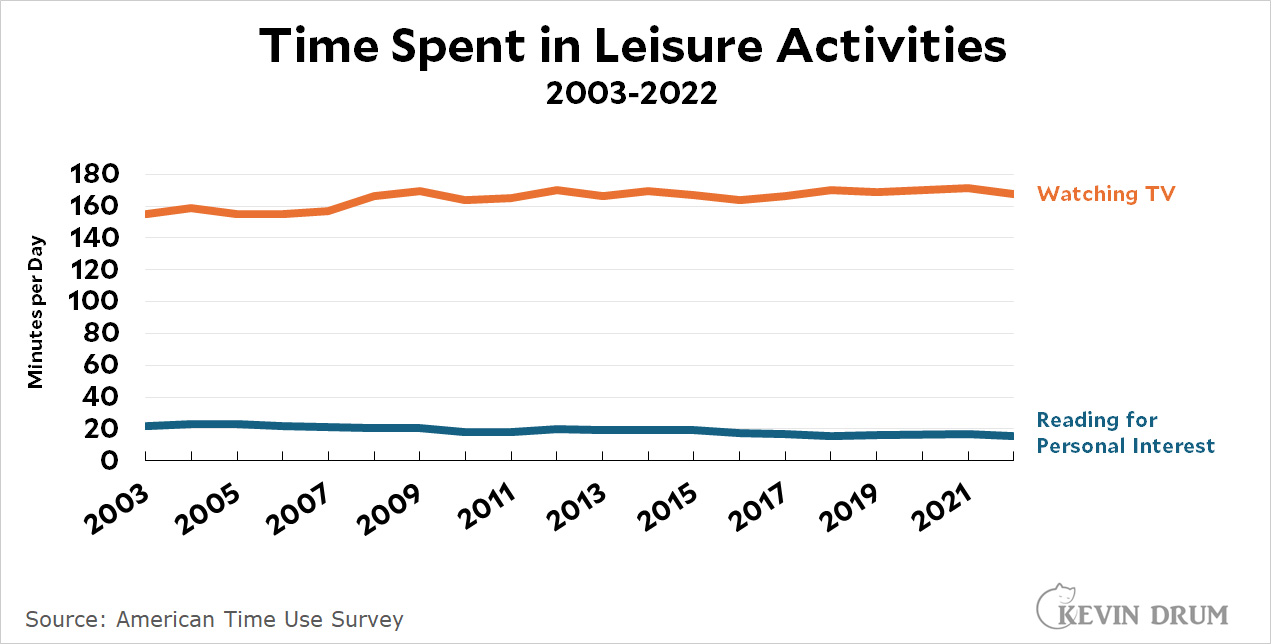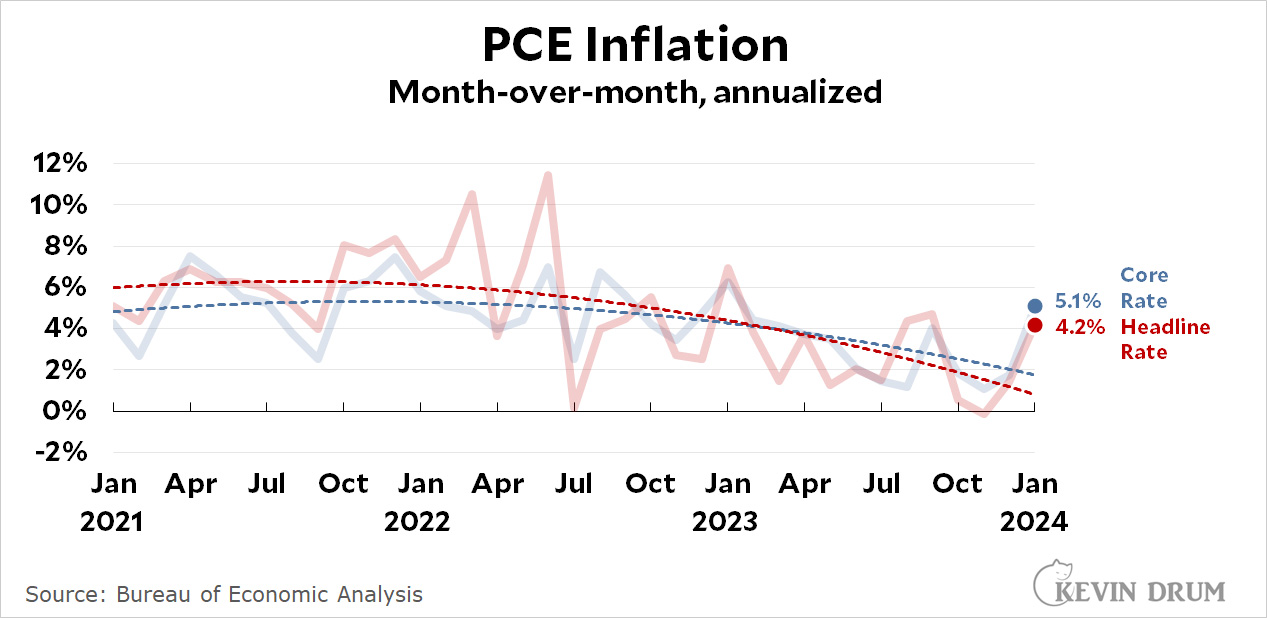I keep hearing about how Mitch McConnell was a terrible person because he stacked the Supreme Court and enabled Donald Trump. That's fair enough, but it's hardly McConnell's biggest achievement:
These days you often hear reporters and commentators saying matter of factly that legislation requires 60 votes in the Senate. This is truly McConnell’s greatest accomplishment. People say this like it’s in the Constitution, like the two-thirds requirement for conviction at impeachment or to approve a treaty. But it is a novel development and it has radically altered U.S. politics. It transforms the federal Senate into a genuinely Calhounian body in which minority factions exercise a de facto and permanent veto over the majority.
It’s what creates gridlock, the breeding ground of political disaffection and extremism.
That's from Josh Marshall, who's old enough to remember that McConnell's real genius was not in breaking a single norm a single time, but in pioneering norm breaking as a governing strategy. He was the one who inherited scattered efforts from his predecessors and transformed them into a single brilliant insight: that the Senate operated on lots of traditions that were just that—traditions. Not rules, not laws, and they could be broken by simply realizing there was nothing to stop you.
This is plainest to see in McConnell's adoption of the routine filibuster. He wasn't the first, but he was the one who put the pieces together and realized you didn't have to pick and choose bills to filibuster. You could just filibuster them all:
 Filibusters doubled the year McConnell took over as Republican leader, and they've doubled again since then.
Filibusters doubled the year McConnell took over as Republican leader, and they've doubled again since then.
But that's not all. McConnell also routinely refused to hold hearings to confirm judges. He would refuse to appoint Republican members to executive agencies, thus preventing a quorum and stopping the agency in its tracks. He held the debt ceiling hostage multiple times. He sometimes flatly refused to hold hearings for executive branch positions, hoping to hamstring Democratic presidents. And most famously, he refused to hold hearings to replace Antonin Scalia on the Supreme Court as long as a Democrat was in the White House.
McConnell was also an inspiration to others. Tommy Tuberville's recent blockade of military promotions, for example, never would have happened in the pre-McConnell era. In the post-McConnell era it was just a routine annoyance.
This is McConnell's legacy. In his final years he softened a bit and became effectively anti-Trump. But in his prime he was an unrepentant arsonist who destroyed the Senate and never looked back.






